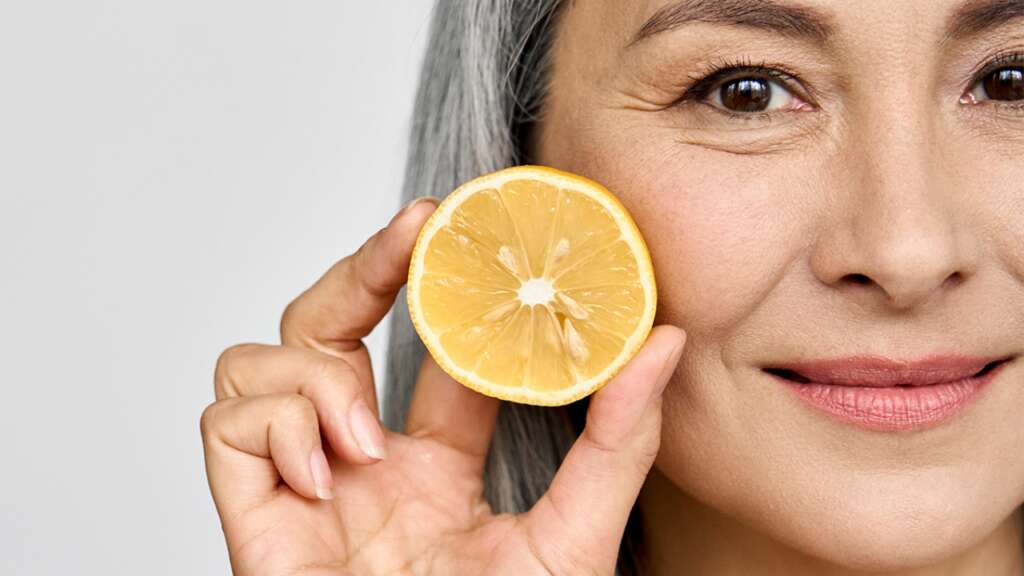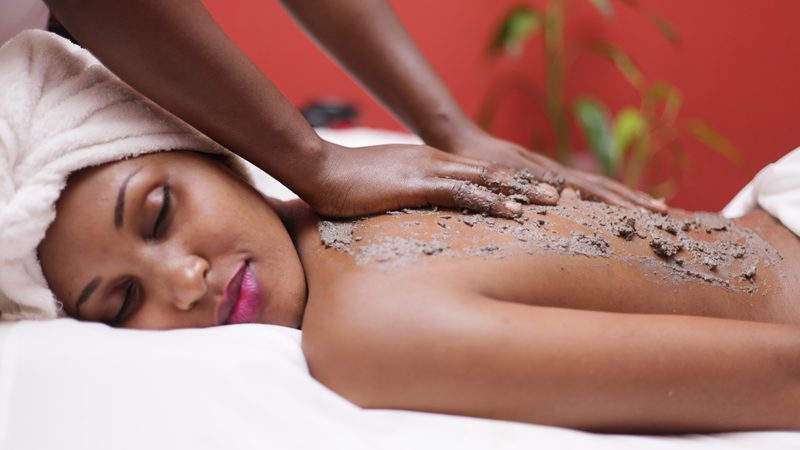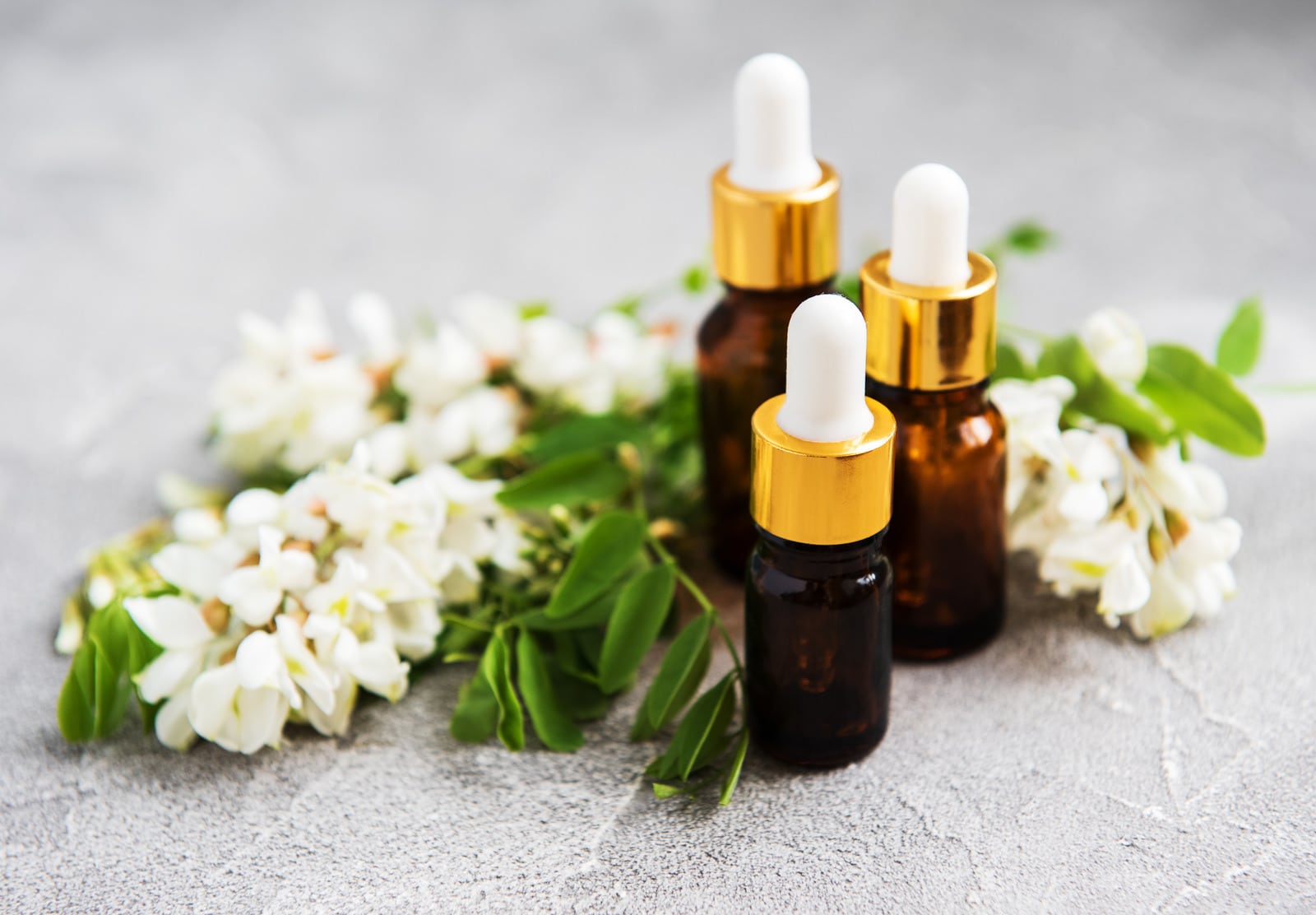Vitamins for Dry Skin: Unlocking the Secrets to Hydration
Dry skin, a common dermatological woe, can be a persistent issue for many. Understanding the root causes and potential solutions is crucial for maintaining healthy, hydrated skin. One avenue worth exploring is the role of vitamins in skincare. These essential nutrients play a pivotal role in supporting skin health, and unlocking their secrets can be a game-changer for combating dry skin.
Brief Overview of Dry Skin and its Causes
Dry skin, medically known as xerosis, occurs when the skin lacks sufficient moisture to stay adequately hydrated. External factors such as harsh weather, excessive bathing, or the use of certain skincare products can contribute to dryness. Additionally, internal factors like age, genetics, and overall health can also influence skin hydration.
The Role of Vitamins in Maintaining Skin Hydration
Vitamins are not just essential for overall health; they also play a crucial role in maintaining skin hydration. Certain vitamins contribute to the skin’s ability to retain moisture, repair its natural barrier, and promote a healthy, supple complexion. Let’s delve into the key vitamins that can be your allies in the battle against dry skin.
Vitamin A: The Skin Moisture Booster
Vitamin A stands out as a potent ally in the quest for hydrated skin. This vitamin supports skin hydration by promoting the production of sebum, the skin’s natural oil. Adequate sebum helps prevent excessive water loss, keeping the skin moisturized and supple. Sources of Vitamin A include carrots, sweet potatoes, spinach, and dairy products. To reap the benefits, aim for the recommended daily intake through a well-balanced diet.
Dietary Sources and Recommended Intake
Incorporating a variety of Vitamin A-rich foods into your diet is key. Consider adding colorful vegetables, leafy greens, and fruits to your meals. The recommended daily intake varies by age and gender, but generally ranges from 700 to 900 micrograms of retinol activity equivalents (RAE) for adults.
Vitamin E: Nourishing the Skin Barrier
Vitamin E is renowned for its antioxidant properties, but it also plays a vital role in protecting the skin’s moisture barrier. This vitamin helps neutralize free radicals that can damage skin cells, contributing to dryness. Almonds, sunflower seeds, and spinach are excellent dietary sources of Vitamin E. Consider incorporating these foods into your daily meals for added skin benefits.
Foods Rich in Vitamin E and Supplementation Tips
Besides dietary sources, Vitamin E supplements can be considered, but it’s crucial to consult with a healthcare professional before adding them to your routine. Striking a balance between dietary intake and supplements can maximize the benefits without the risk of excess, as Vitamin E is fat-soluble and can accumulate in the body.
Vitamin C: Collagen Production and Skin Hydration
Vitamin C, known for its immune-boosting properties, also contributes to hydrated skin by supporting collagen production. Collagen is a protein that provides structure and elasticity to the skin, helping it retain moisture. Citrus fruits, strawberries, and bell peppers are rich sources of Vitamin C.
Sources of Vitamin C and Incorporating it into the Daily Diet
Boosting your Vitamin C intake can be as simple as enjoying a refreshing fruit salad or adding colorful vegetables to your meals. Aim for at least 75 to 90 milligrams per day for adults, adjusting based on individual needs and health conditions.
Understanding the role of vitamins in combatting dry skin opens up a holistic approach to skincare. By incorporating Vitamin A, Vitamin E, and Vitamin C into your diet, you can support your skin from the inside out, promoting hydration and overall skin health. Remember, a balanced diet, proper hydration, and a consistent skincare routine can work wonders for achieving that coveted radiant and moisturized complexion.
Vitamins for Clear Skin: A Radiant Complexion Unveiled
Achieving clear, radiant skin is a goal shared by many, yet it often eludes us due to various obstacles. From environmental factors to lifestyle choices, our skin faces constant challenges. One powerful approach to overcoming these obstacles is harnessing the potential of vitamins. In this exploration, we delve into the impact of specific vitamins on achieving clear, blemish-free skin.
Defining Clear Skin and Common Obstacles
Clear skin goes beyond mere aesthetics; it signifies a healthy complexion devoid of blemishes, acne, and other imperfections. However, achieving this clarity can be hindered by factors such as pollution, stress, and inadequate skincare. Understanding and addressing these obstacles is crucial on the journey to radiant skin.
Vitamin D: The Sunshine Vitamin for Skin Clarity

Exploring the Role of Vitamin D in Maintaining Skin Health
Vitamin D, often referred to as the “sunshine vitamin,” plays a pivotal role in maintaining skin health. It aids in skin cell growth, repair, and metabolism. Insufficient levels of Vitamin D can lead to various skin issues, including dryness and psoriasis.
Sun Exposure, Dietary Sources, and Supplements
Sun exposure is a natural way to boost Vitamin D levels. However, it’s essential to strike a balance to avoid skin damage. Incorporating Vitamin D-rich foods like fatty fish, eggs, and fortified dairy into your diet is beneficial. In cases of deficiency, supplements can be considered under professional guidance.
Vitamin B Complex: Balancing Skin Health
Breaking Down the Different B Vitamins and Their Contributions to Clear Skin
The B vitamin complex, comprising B1, B2, B3, B5, B6, B7, B9, and B12, collectively supports skin health. Biotin (B7) is renowned for promoting healthy skin, while niacin (B3) helps manage acne and inflammation.
Foods Rich in B Vitamins and Supplementation Guidelines
To enhance B vitamin intake, include whole grains, leafy greens, nuts, and lean proteins in your diet. However, individual needs vary, and supplementation should be approached with caution. Consultation with a healthcare professional ensures an appropriate and personalized approach.
Vitamin B Complex: Balancing Skin Health

Breaking Down the Different B Vitamins and Their Contributions to Clear Skin
The B vitamin complex, comprising B1, B2, B3, B5, B6, B7, B9, and B12, collectively supports skin health. Biotin (B7) is renowned for promoting healthy skin, while niacin (B3) helps manage acne and inflammation.
Foods Rich in B Vitamins and Supplementation Guidelines
To enhance B vitamin intake, include whole grains, leafy greens, nuts, and lean proteins in your diet. However, individual needs vary, and supplementation should be approached with caution. Consultation with a healthcare professional ensures an appropriate and personalized approach.
Discussing the Importance of Zinc in Preventing Acne and Promoting Skin Clarity
Zinc is a vital mineral with remarkable skin-clearing properties. It helps control inflammation, regulates oil production, and accelerates wound healing. Acne sufferers often experience improvements with zinc supplementation.
Dietary Sources and Considerations for Supplementation
Foods like nuts, seeds, whole grains, and legumes provide zinc. However, factors like vegetarianism or digestive issues may necessitate supplementation. Striking a balance is key, as excessive zinc intake can lead to adverse effects.
In the pursuit of clear skin, understanding the role of vitamins is a valuable asset. Incorporating Vitamin D, the B complex, and zinc through a balanced diet and, when necessary, supplementation, can contribute significantly to a radiant complexion. However, it’s crucial to approach these interventions mindfully, acknowledging individual variations and seeking professional guidance for optimal results. Here’s to a year of nourishing your skin from within for a vibrant, clear glow!
Vitamins for Thin Skin and Easy Bruising: Strengthening Your Body Armor
Thin skin and easy bruising can be more than just cosmetic concerns; they might indicate underlying health issues. In this guide, we’ll delve into the factors contributing to thin skin and susceptibility to bruising. More importantly, we’ll explore the pivotal role of vitamins in fortifying your body’s natural armor.
Understanding Thin Skin and its Susceptibility to Bruising:
Thin skin is often a result of aging, sun damage, or nutritional deficiencies. This can lead to increased vulnerability, making it easier for bruises to form. Understanding these factors is crucial for developing an effective strategy to promote skin health.
Exploring the Role of Vitamins in Promoting Skin Thickness and Resilience:
Vitamins play a vital role in maintaining overall skin health. Two key players in this regard are Vitamin K and Vitamin C. Let’s delve into their functions and how they contribute to skin thickness and resilience.
Vitamin K: The Clotting Agent for Healthy Skin:
Vitamin K is renowned for its clotting properties, which are essential for maintaining healthy skin. We’ll detail how this vitamin supports blood clotting, reducing the likelihood of bruising. Additionally, we’ll discuss various food sources rich in Vitamin K and the potential benefits of supplementation.
Food Sources and Potential Supplementation:
Explore a range of foods that are excellent sources of Vitamin K, from leafy greens like kale and spinach to broccoli and Brussels sprouts. We’ll also touch upon the importance of consulting with healthcare professionals before considering supplementation.
Vitamin C and Collagen: Building Skin Thickness:
Vitamin C is a powerhouse in collagen production, a key factor in skin thickness and elasticity. Revisit how Vitamin C contributes to collagen synthesis and learn about strategies to ensure you’re getting enough of this crucial vitamin.
Strategies to Ensure Sufficient Vitamin C Intake:
Discover delicious foods rich in Vitamin C, such as citrus fruits, strawberries, and bell peppers. We’ll also discuss the importance of a balanced diet and potential supplementation to meet your body’s Vitamin C needs.
Understanding the dynamics of thin skin and easy bruising is the first step towards building a robust defense mechanism. By incorporating adequate amounts of Vitamin K and Vitamin C into your diet, you can significantly enhance your skin’s thickness and resilience. Remember, a holistic approach, including a nutritious diet and consultation with healthcare professionals, is key to achieving optimal skin health. Strengthen your body armor with the right vitamins, and let your skin radiate health and vitality.
Vitamins for Crepey Skin: Defying the Aging Process
As the sands of time trickle on, our skin undergoes various changes, and one of the most visible signs of aging is crepey skin. Defined by its thin, finely wrinkled texture resembling crepe paper, this phenomenon is often associated with the natural aging process. However, the good news is that there are ways to combat and even reverse the signs of crepey skin, and key to this battle are essential vitamins.
Defining Crepey Skin and its Association with Aging
Crepey skin is characterized by its delicate, crinkled appearance, often appearing on areas like the arms, neck, and chest. This is primarily a result of decreased collagen and elastin production, which are essential proteins responsible for maintaining skin elasticity. Aging, along with other factors like sun exposure and genetics, contributes to this decline.
How Vitamins Can Combat the Signs of Aging Skin
Enter the superheroes of skincare: vitamins. These micronutrients play a crucial role in supporting skin health and can be powerful allies in the fight against crepey skin. Let’s delve into the specifics of some key vitamins that can defy the aging process.
Collagen-Boosting Vitamins: A, C, and E
Highlighting the Synergy between Vitamins A, C, and E in Collagen Production
Vitamin A, often found in retinoids, aids in cell turnover, promoting the production of new skin cells and collagen. Vitamin C, a potent antioxidant, not only protects the skin from free radicals but also plays a pivotal role in collagen synthesis. Meanwhile, Vitamin E works to protect collagen from damage caused by oxidative stress, ensuring its structural integrity.
Dietary Sources and Lifestyle Tips for Healthier, Less Crepey Skin
Incorporating a variety of foods rich in these vitamins is crucial for promoting healthier skin. Carrots, sweet potatoes, and leafy greens are excellent sources of Vitamin A. Citrus fruits, strawberries, and bell peppers pack a punch of Vitamin C, while nuts, seeds, and spinach contribute Vitamin E to your diet. Additionally, adopting a lifestyle that includes sun protection, hydration, and a balanced diet can further enhance the benefits of these vitamins.
Omega-3 Fatty Acids: Nourishing from Within
Exploring the Benefits of Omega-3s in Maintaining Skin Elasticity
Beyond vitamins, another key player in the battle against crepey skin is omega-3 fatty acids. These essential fats, found in fatty fish like salmon, flaxseeds, and walnuts, contribute to the overall health of the skin. Omega-3s help maintain skin elasticity by supporting the lipid barrier, preventing moisture loss, and reducing inflammation.
Incorporating Omega-3-Rich Foods into the Diet
To harness the benefits of omega-3 fatty acids, consider incorporating fatty fish into your meals at least twice a week. Alternatively, if you’re a plant-based enthusiast, opt for flaxseeds, chia seeds, and walnuts. These foods not only nourish your skin from within but also contribute to your overall well-being.
The journey to healthier, less crepey skin involves a holistic approach that combines the powers of collagen-boosting vitamins and omega-3 fatty acids. By incorporating these nutrients into your diet and adopting skin-friendly lifestyle habits, you can defy the aging process and embrace skin that radiates vitality and resilience. After all, age is just a number, and with the right nutrients, your skin can tell a timeless tale of health and vibrancy.
Vitamins for Skin Repair: Healing from the Inside Out
Our skin, the body’s largest organ, plays a crucial role in protecting us from the external environment. While we often focus on external skincare routines, it’s equally essential to nourish our skin from the inside. Skin repair is a key aspect of overall skin health, and this journey begins at a cellular level. In this blog, we’ll explore the pivotal role that vitamins play in supporting the skin’s natural healing processes.
Emphasizing the Importance of Skin Repair:
Before delving into specific vitamins, it’s important to understand why skin repair is vital. Our skin is constantly exposed to stressors like UV rays, pollution, and injuries. Proper skin repair not only helps in healing wounds but also in maintaining the skin’s integrity, elasticity, and overall youthful appearance.
Vitamin E: Accelerating Wound Healing:
One of the standout vitamins in the realm of skin repair is Vitamin E. This fat-soluble antioxidant is renowned for its ability to accelerate wound healing and reduce scarring. Vitamin E works by promoting the growth of new skin cells and aiding in the regeneration of damaged tissues. This makes it particularly beneficial for those looking to minimize the appearance of scars from injuries or surgeries.
Sources and Applications:
Ensure a healthy dose of Vitamin E by incorporating foods like almonds, spinach, and sunflower seeds into your diet. Additionally, topical application of Vitamin E oil can be directly beneficial for scars and wounds. Whether through diet or skincare products, incorporating Vitamin E can contribute significantly to your skin’s healing journey.
Vitamin C: The Repairing Agent:
Moving on to another powerhouse vitamin for skin repair, Vitamin C takes center stage. This water-soluble vitamin is a crucial component in collagen synthesis, the protein responsible for maintaining skin structure and elasticity. Collagen is integral to the healing process, making Vitamin C an essential player in skin repair.
Ensuring a Consistent Intake:
Consistency is key when it comes to Vitamin C. Citrus fruits, strawberries, and bell peppers are rich sources that can be easily incorporated into your daily meals. Given its water-soluble nature, the body doesn’t store Vitamin C for an extended period, emphasizing the need for a regular intake to support ongoing skin repair processes.
Prioritizing skin repair from the inside out is a holistic approach to skincare. Vitamins, especially Vitamin E and Vitamin C, play pivotal roles in promoting skin healing, reducing scarring, and maintaining overall skin health. A balanced diet, rich in these essential nutrients, coupled with mindful skincare practices, can contribute significantly to your skin’s resilience and vibrancy. So, here’s to another year of embracing the journey towards healthier, more radiant skin!
Vitamins for Healthy Skin: A Comprehensive Guide to Radiance
As we celebrate the one-year anniversary of prioritizing our health and well-being, let’s delve into a topic that often reflects our inner vitality – our skin. Achieving radiant, healthy skin goes beyond skincare routines; it’s deeply rooted in nourishing our bodies with essential vitamins. In this comprehensive guide, we’ll explore the collective impact of vitamins on skin health, the significance of a well-balanced diet, and practical tips for maintaining vibrant skin.
Summarizing the Collective Impact of Vitamins on Skin Health
Our skin is a reflection of our overall health, and vitamins play a crucial role in ensuring its radiance. From repairing damaged cells to promoting collagen production, vitamins contribute to various aspects of skin health. A balanced intake of these essential nutrients is the key to achieving a natural glow.
The Importance of a Well-Balanced Diet for Overall Skin Wellness
Before delving into specific vitamins, it’s vital to underscore the importance of a well-balanced diet. Nutrient-rich foods, including fruits, vegetables, lean proteins, and whole grains, provide the foundation for healthy skin. A diet lacking in essential vitamins can lead to dullness, premature aging, and various skin conditions.
Antioxidant Vitamins: A, C, and E
Antioxidants, such as Vitamins A, C, and E, play a pivotal role in combating free radicals – unstable molecules that contribute to skin aging and damage. These vitamins neutralize free radicals, promoting skin repair and preventing premature aging. Incorporating antioxidant-rich foods like berries, leafy greens, and nuts into your diet can enhance your skin’s resilience.
Hydration Vitamins: A, C, D, and E
Skin hydration is another critical aspect of maintaining a healthy complexion. Vitamins A, C, D, and E contribute to skin moisture and suppleness. Ensuring adequate water intake is equally essential. Practical tips for staying hydrated include drinking enough water throughout the day, using hydrating skincare products, and avoiding excessive caffeine or alcohol consumption.
Consistency and Lifestyle Factors
Consistency is key when it comes to reaping the benefits of vitamins for skin health. Establishing a routine that includes a variety of nutrient-dense foods ensures a continuous supply of essential vitamins. Additionally, adopting a healthy lifestyle – incorporating regular exercise, sufficient sleep, and stress management – further enhances the radiance of your skin.
Encouraging readers to consult with a healthcare professional for personalized advice
While this guide provides valuable insights, individual nutritional needs can vary. Consulting with a healthcare professional or a registered dietitian is crucial for personalized advice tailored to your unique requirements. They can assess your specific needs, recommend suitable supplements if necessary, and ensure a holistic approach to skin health.
Conclusion
Achieving radiant, healthy skin involves more than topical treatments. A well-balanced diet rich in antioxidant and hydration vitamins, coupled with consistent healthy lifestyle choices, is the foundation for skin that glows from within. As we embark on another year of self-care, let’s prioritize the nourishment of our bodies, reflecting the vibrancy we celebrate on this special occasion.





